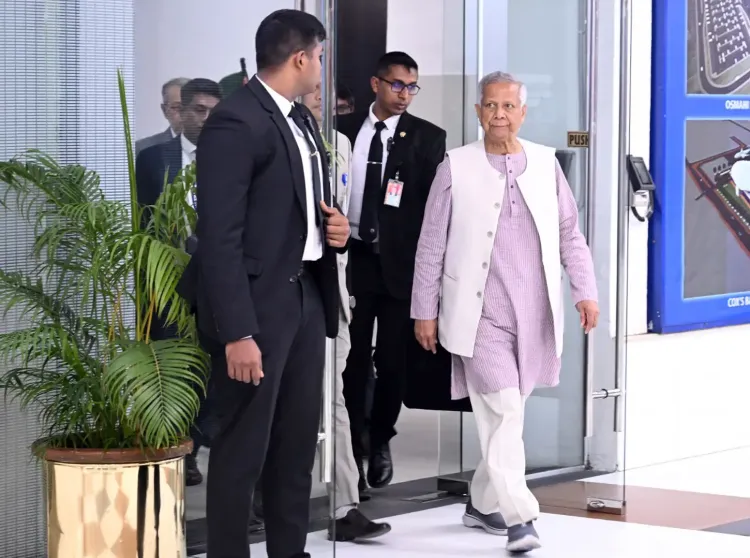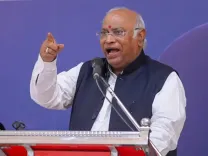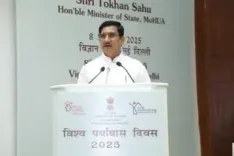Has Yunus’s Legacy of Favoritism Left Bangladesh with a Fragile Economy?

Synopsis
Key Takeaways
- Rising unemployment is a major issue affecting the population.
- Inflation rates remain high, squeezing household budgets.
- Many small businesses are shutting down due to economic strain.
- The youth are facing challenges in finding suitable employment.
- Policy failures have resulted in increased food insecurity and limited healthcare access.
Dhaka, Oct 8 (NationPress) The Awami League of Bangladesh has underscored the severe economic challenges the nation is currently facing under the interim government led by Muhammad Yunus. This situation has rendered the economy incapacitated, leaving citizens in a state of growing despair.
As per the party's observations, each month unveils new narratives of families battling to make ends meet, workers losing their employment, and small enterprises shutting down.
"Unemployment is escalating, inflation is stubbornly persistent, and salaries are lagging behind the rising cost of living. The plight is particularly acute for educated youth, as millions are finding it increasingly difficult to secure jobs that align with their qualifications. Frustration is palpable in factories and marketplaces across the nation. Industries that were once flourishing are now operating at merely half their potential, resulting in thousands of workers being laid off as production declines," stated the Awami League.
The party referred to insights from economists and business leaders, highlighting a diminishing confidence in Yunus's governance. His inability to restore economic stability, retain investor confidence, and regulate inflation has exacerbated the ongoing crisis.
Additionally, many perceive this as a significant leadership shortfall, demonstrating a lack of comprehension regarding the pressing need for economic recovery and the hardships faced by the general populace. What was initially regarded as a transitional period under Yunus is now viewed as an era marked by economic stagnation, uncertainty, and lost opportunities.
"In spite of official assertions of stability, the inflation crisis in Bangladesh continues to ravage its citizens. In September 2025, inflation reached a staggering 8.36 percent, which remains alarmingly high for an already struggling economy. This slight decrease provides scant relief when costs remain unattainable for millions. Under Yunus's interim leadership, poor economic strategies and negligence in policy have transformed daily survival into a challenge," emphasized the Awami League.
The party highlighted that women and low-income families are bearing the brunt of the situation, facing dwindling job prospects, skyrocketing expenses, and reduced social safety nets. Families are compelled to cut back on essential needs such as food, healthcare, and education, with many teetering on the edge of poverty.
"The rise in food insecurity is alarming, access to healthcare is limited, and social welfare initiatives are failing to reach those most in need. These are not mere unfortunate occurrences; they are direct consequences of policy failures, ineffective governance, and entrenched corruption that has thrived under Yunus’s leadership," the Awami League remarked.
"Yunus’s legacy of nepotism, lenient loan practices, and disregard for long-term reforms has resulted in a fragile economy, weakened institutions, and a populace that is paying the price. Ordinary citizens are suffering due to decisions made to favor a select group of politically connected elites, while the majority struggle to survive," they added.









